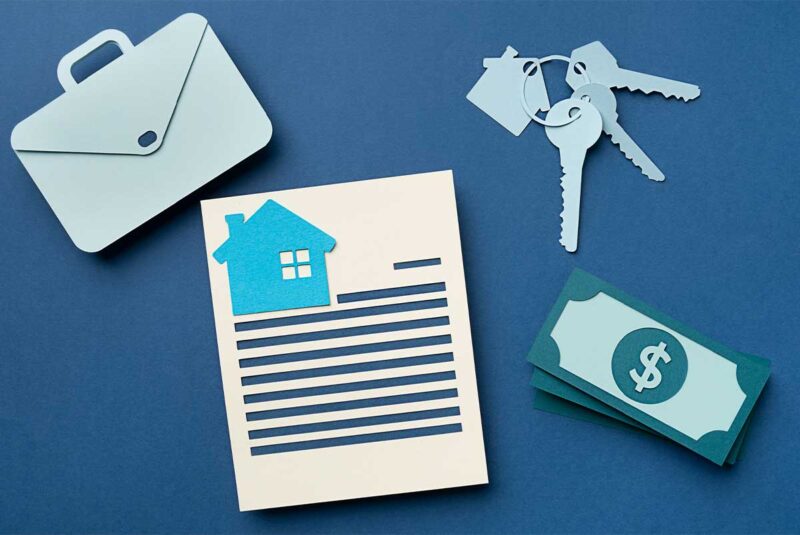Ready To Buy a Home?
Get Approved to Buy a Home
Rocket Mortgage® lets you get to house hunting sooner.
Loan origination is a technical term for the process of generating, reviewing and ultimately approving or denying a loan. Mortgage origination refers to the same basic process — but specifically for home loans.
The mortgage origination fee covers the costs of this undertaking. In this article, we’ll explain how this process works, how the fee gets calculated and what you can do to pay as little as possible.
What Is a Mortgage Origination Fee?
The mortgage origination fee covers the cost of generating the mortgage, collecting any supporting documents, putting the loan through the underwriting process and ultimately approving or denying the loan.
If you’re interested in buying down your interest rate, the mortgage origination fee would likely be one of the costs associated with doing so.
Typically, a mortgage loan originator (MLO) will be the one to walk you through the process. You should get a loan estimate a few business days after submitting a mortgage application. This estimate will include itemized costs and fees, including the mortgage origination fee.
How Much Is the Mortgage Origination Fee?
The mortgage origination fee will vary depending on several factors, including the loan and lender you choose, but costs usually range from 0.5% – 1% of the total loan amount.
For example, if you took out a mortgage for $325,000, you should expect to pay anywhere between $1,625 and $3,250 for the origination fee.
Factors that impact the mortgage origination fee
Here are some of the most important factors that determine how much you’ll owe for the mortgage origination fee.
Factors Impacting Mortgage Origination Fee
Generally, the higher your credit score, the better your position when applying for a mortgage. A high credit score can reduce the amount you’ll owe because you’ll pay less interest than you would with a lower credit score.
The type of mortgage you choose can impact your mortgage origination fee. For example, with a conventional loan, lenders have a wider range of options for setting that fee compared to some government-backed home loans, which cap origination fees.
A bigger down payment means that you don’t have to borrow as much, reducing the size of the loan. This directly impacts the mortgage origination fee. Additionally, having a higher percentage to put down could lead lenders to charge less for the fee.
The mortgage lender you choose will also play a factor, as different lenders have different fee structures. Be sure to take the interest rate and closing costs into account, as well as the origination fee, when shopping lenders.
When is payment due on the mortgage origination fee?
Usually, you’ll pay the mortgage origination fee as part of your closing costs. However, some lenders may also give you the option to roll the origination fee into the loan amount.
If you choose to do that, you’ll pay the fee off gradually over the life of the mortgage, and you’ll likely end up paying interest on it as well.
Tips for Paying a Lower Mortgage Origination Fee
Here are some steps you can take to try to minimize what you’ll owe for the mortgage origination fee.
Save a bigger down payment
The less you borrow, the lower your mortgage origination fee will be. One of the best ways to reduce the overall amount of the loan you need to purchase a home is to increase your down payment.
In addition to paying less in interest over the life of the loan and owing lower monthly payments, you also increase your odds of the loan being approved. Also, if you put 20% down, you won’t have to pay mortgage insurance.
Shop lenders
You won’t know how different lenders compare to each other unless you talk to more than one. Make sure to ask them questions and take the time to understand the complete picture when it comes to estimating your loan costs.
Remember: Some lenders may include additional fees, while others may offer to waive fees but charge a higher interest rate. Crunch the numbers to truly understand what your closing costs are, and take some time to think about your goals before committing to a lender.
Negotiate
As the adage goes, “it never hurts to ask.” There’s truth to this when it comes to negotiating with a lender. Successful negotiations can lead to a lower mortgage origination fee and better overall loan terms.
Here are some tips for negotiating with a mortgage lender:
- Do your research: If you can show your lender offers from other loan providers, they might be able to make adjustments to match them.
- Prioritize needs: You don’t get everything you want in a negotiation, so it’s important to decide on what’s most important to you. Maybe it’s the overall interest rate, and maybe it’s the fees. But if you prioritize your needs and make them clear in what you’re asking for, it will help your negotiations.
- Be willing to walk away: There are many eligible lenders out there. Sometimes, to get the best deal, you have to be willing to walk away.
Additional Mortgage Costs
It’s important to remember that the mortgage origination fee is far from the only closing cost associated with securing a mortgage. Here are some other costs you’ll need to be prepared to pay for:
Keep in mind that closing costs can be negotiated, and you might be able to get the seller to pay for some of them. This is known as seller concessions.
Mortgage Origination Fee FAQs
Yes, you can. Lenders may reduce the fee in multiple ways — for example, a simple reduction or a lender credit.
Different lenders have different fee structures, but the loan value is usually one of the primary factors in the calculation.
Some lenders offer this option. When you do so, you’ll pay the fee off gradually as you make monthly mortgage payments, and you’ll probably end up paying interest on the fee.
Usually, you won’t owe the mortgage origination fee if your application is denied. But check with your lender to be sure.
Final Thoughts on Mortgage Origination Fees
Fees are just one part of the cost of securing a mortgage. However, if you plan ahead and put yourself in the strongest financial position you can before applying for a mortgage, you’ll end up paying as little as possible.
Even if you have a rougher road to approval, the mortgage origination fee is still a small percentage of the overall cost of purchasing a home. And if you absolutely need to, you can often roll it into the loan.
Get approved to buy a home.
Rocket Mortgage® lets you get to house hunting sooner.
The Short Version
- The mortgage origination fee covers the cost of generating the loan, verifying supporting documents, going through underwriting and ultimately approving or denying the loan
- The mortgage origination fee will vary depending on several factors, including the loan and lender you choose, but costs usually range from 0.5% – 1% of the loan amount
- To pay the smallest origination fee, you should save up as much of a down payment as possible, shop multiple lenders and then negotiate with your lender




